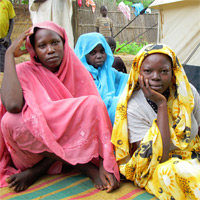
Against a backdrop of the Khartoum regime’s population-clearing invasion of Abyei, its war crimes spree in the Nuba Mountains, its ongoing attacks against civilians in Darfur, and most recently its assault on the Blue Nile border state, it sounds counterintuitive to proclaim this as an unprecedented moment of opportunity for Sudan. Yet that is my premise here—to argue that the combination of current internal, regional and international variables could provide a real catalyst for future peace in Sudan.
Internally, the secession of South Sudan produced massive reverberations in the state of Sudan it left behind. The regime in Khartoum can no longer play the South against other regions, or use peace processes with the South as a reason to deemphasize human rights and conflict resolution issues within the rest of Sudan. As Darfur, Abyei, the Nuba Mountains, Blue Nile, the East, and the Nubia in the far North all represent armed or unarmed opposition to the regime with almost identical grievances, the potential grows daily for a more united opposition advocating for structural change in Sudan. Unlike the street revolutions beginning in Khartoum that overthrew Sudanese dictatorships in 1964 and 1985, my colleague Omer Ismail reminds me, today’s dynamic is very different, marked by a revolution of peripheral regions against an exploitative, non-inclusive central government.
Sudanese are taking multiple paths in support of altering the status quo. Demonstrations earlier this year, inspired by Arab Spring initiatives in neighboring countries, were ruthlessly crushed with draconian regime tactics—including rape of women involved in protests. The ability of the national security apparatus to utilize modern day technology and infiltrate potential opposition groups further chilled mass protests which might have drawn the type of attention we have seen from the international community to similar uprisings. Traditional opposition political parties and civil society organizations continue to agitate for democracy and inclusive government. Moreover, armed opposition movements in Darfur, South Kordofan and Blue Nile are at full-scale war with the
regime, but are not yet fully coordinating their activities.

